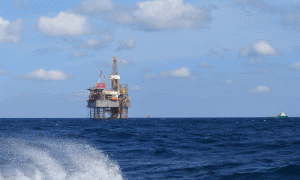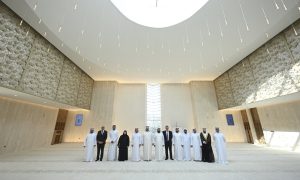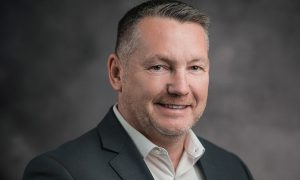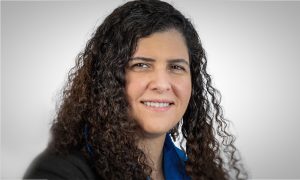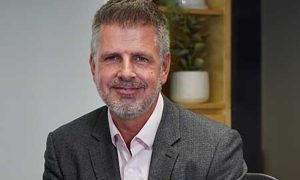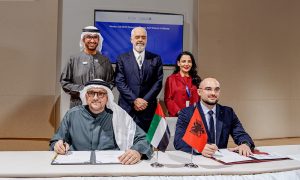Standing tall
Ibrahim Al-Alawi, Deputy CEO, AlMansoori Specialised Engineering on making a global success out of home-grown oil field services company
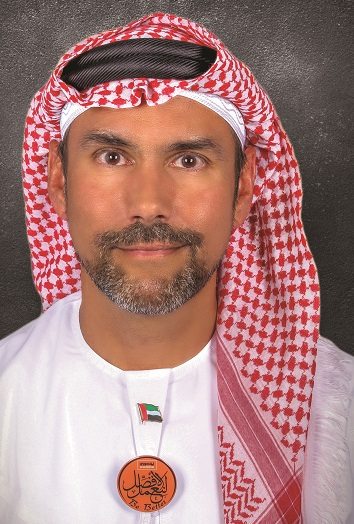
Ibrahim Al-Alawi, Deputy CEO, AlMansoori Specialised Engineering, speaks to Anoop K Menon on how his home-grown oil field services company has learnt to thrive in an industry dominated by Western companies
Do you think the downward trend in oil prices will have a negative impact on upstream projects in the region, and by extension the oil field services business?
From our experience, historically, oil prices have always tended to fluctuate. However, a lot of our business is based on long-term contracts related to upstream projects, where investments are huge and companies making these investments aren’t going to cancel projects because of a short-term spike or drop in oil prices. But we will definitely be worried if there are extreme movements in oil prices, as we have experience with some of these roller coaster-type scenarios in the past.
Oil field services companies have played a key role in enabling the rise of National Oil Companies (NOC) to global prominence. But in AlMansoori, you also see a strong, regional player in the oil field services sector. Are there some lessons from your experience?
Worldwide, the oil field services sector has traditionally been dominated by Western companies. They pioneered a lot of the technologies since the beginning of the industry 100 years ago. Oil companies – IOCs or NOCs – have always turned to them in order to access these cutting-edge technology and services.
We started the company in the late 1970s, and established ourselves during the boom of the early 1980s. In fact, we were one of the pioneers of the indigenous service sector globally. Even today, you won’t find too many home-grown companies in this sector. While we have been fortunate in this regard, the same cannot be said for the local oil field services sector. The local sector has not really developed the capacity it should have if one looks at the long heritage of the oil and gas industry in our region. We are very happy with the position we are in now, but there is always room for improvement. Given the expansion in the upstream sector throughout the region, there is enough work to go around. Our growth will not come at the expense of our competitors and vice-versa. In fact, in some countries, there is a shortage in terms of equipment and people that we or our competitors can put on the ground. There isn’t enough of both to satisfy the demand.
Moreover, we have always looked to the future; we have always wanted to grow our business, develop our technologies and our people, which puts us in a unique position compared to other indigenous service companies. We can compete head-to-head with the Western majors and win contracts on our own merit, which is something we are very proud of.
What is the biggest advantage you bring to the table?
The biggest advantage we bring to the table is our network of contacts within the region. We are established throughout the Middle East & North Africa [MENA] region, where we have local offices and people working for us. Being from the region, I am very proud to say that in most of the countries we work in, the majority of the workforce is local, which gives us an edge over major Western competitors.
We also have a long-term growth strategy in place. As we evolved and reached a certain size, we realised that growth for the sake of growth isn’t healthy. We needed to have a strategy to grow and put resources where we could achieve the best returns. Every year, we do our budget and forecasting with a major focus on the next calendar year but then we also have a long-term view, through five-year plans, to keep an eye on the future.
Is AlMansoori’s long history in the region an important consideration for customers when it comes to contracts?
Customers who look at price tend to give contracts to the lowest bidder. But those who look at the value proposition don’t go with the cheapest; rather, they prefer to go with those who will give them the best value for money. In such a scenario, our history and reputation gives us a good advantage. Our tagline says “Always AlMansoori”, because once they work with us, they always ask us to come back thanks to the high quality of our services.
Again, the big players in our industry sell technology; we sell service. The big boys will go in, see what the customer’s problem is and tell them how they are going to solve it technically. We go in, listen to our customers and try to give them what they are expecting to receive, which is why they always come back to us.
Do the local oil companies, with their accumulated years of experience, still need IOCs?
Local oil companies have tremendous operational experience spanning some 40 years, and they don’t need any help producing the easy oil. Where they will need IOCs are the problematic reservoirs that are going to become more frequent in the future. The challenge for the next 30 years is going to be water cuts, decreased productivity, aging facilities, smaller and more complex reservoirs – the kind of problems they never had in the region but something that IOCs have frequently tackled in other parts of the world. IOCs will bring their expertise to fields where we need highly technical solutions.
In the oil & gas industry, you see companies competing and partnering at the same time. Is this philosophy being embraced by oil field services companies too?
Oil companies have always been competitors and partners. For example, in Abu Dhabi, the ADCO concession was developed by a consortium of BP, Shell, Exxon-Mobil and Total. When it comes to development, they join forces, though they also compete in other sectors. In the last 10 years, we have seen IOCs partnering with the NOCs, examples of this trend being India’s ONGC Videsh and Malaysia’s Petronas Carigali.
In the oil field services sector too, we have ‘friendly’ competition where though we compete for contracts, we also do business with each other. For example, if we have a shortage of equipment or cannot deliver, we make an agreement with our competitors to rent people or equipment from them. In the end, we all want to satisfy our customers, and it doesn’t pay to be antagonistic because tomorrow, we may need each other.
Technology has always been a crucial differentiator for the oil field services industry. Where does AlMansoori stand in this regard?
We are not so big as a Schlumberger or a Halliburton, and we don’t have access to a lot of capital, so we have to be very careful where we deploy our capital. Where technology is concerned, we understand that if we sit still, we will be left behind. In the absence of an R&D department, we seek out and partner with small companies that offer niche technologies and bring those technologies to the region as a value-added service for our clients.
One of the new technologies we are introducing here is called multi-phase flow meter, which measures individual water, oil and gas flow rates in simultaneous flow. This is very unique and provides huge advantages for our customers because they can get the information they need in real time.
At the same time, it is important to remember that you can always get the technology but the main challenge is applying it locally. That’s where local experience counts.
The region’s oil & gas industry has been praised for its high safety standards. But when oil companies contract work out to the oil field service companies, aren’t they also outsourcing the safety aspect as well?
At AlMansoori, we are very proud of all the international certifications we have achieved for safety, environment and quality. When we completed the certification goals we set for ourselves, we found that we are actually ahead of our customers. At the same time, if it wasn’t for them, perhaps we wouldn’t have achieved that. They demand high standards from us, which forces us to upgrade ourselves to meet and exceed those expectations.
From a business standpoint, are you content to stay focused on the Middle East?
Right now, the majority of our growth comes from Abu Dhabi, Saudi Arabia and Oman. Given their robust long-term spending plans, we are pretty confident that our business is secure for the immediate future.
But we are not ignoring other areas either. In fact, in the near term we see huge potential in East Africa so we have established an operations base in Uganda. We have also worked in Ethiopia and Somaliland.
At the moment, we are working in 27 countries but have a permanent presence – an office or a base – in only 15 of them. In the rest, we have people and equipment on-site, because as an industry we don’t have a very large footprint. It is easy to ship equipment in and out, the most difficult logistics piece being customs clearance and formalities for crossing borders.
What are your plans for the future? Are you planning any acquisitions? Are you interested in exploring service opportunities in the region’s rapidly growing downstream industry?
We are always searching for ways to add value to our customers; we are always listening to their concerns and their challenges and trying to find ways to help them. If there is a shortage of a certain service, we will definitely study whether we should be getting into it; if there is a technology missing, we will go out and source that technology.
For us, an acquisition is always a strategic decision, not a commercial one. Being a private company with limited resources, we have to think twice before we spend money. We don’t want to buy a company just to make money from it. When we acquire companies, it is to gain technology or some other value add.
As for developing downstream service capabilities, in the oil & gas business there is a clear-cut divide between upstream and downstream. We have never worked in the latter so we don’t understand it.

